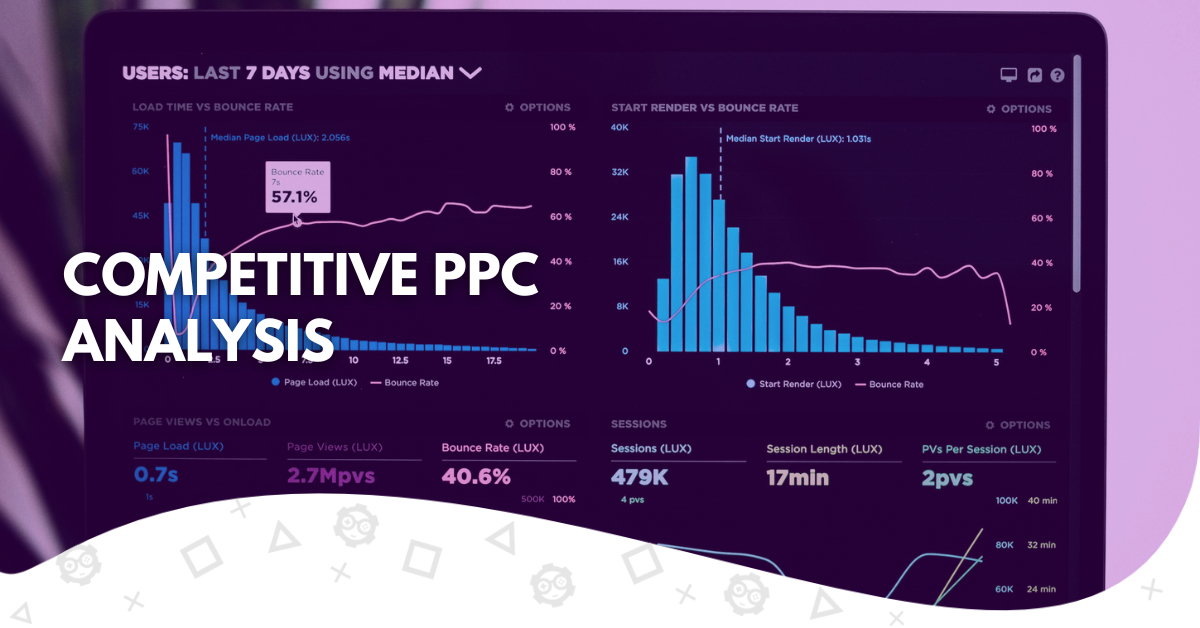The whole world is talking about it – PPC ads. Whether we like it or not, we are in the digital marketing age, and thus – we need to work in a digital marketing world. The most efficient way of advertising globally is currently the PPC model. The two giants, Facebook and Google, that use this method now control around 60% of the digital advertising market.
In this article, we will provide insights into PPC competitor analysis tools that can help you create your own paid search ads. Of course, this paid advertising is much more than looking at PPC competitors’ ad strategies and finding paid keywords. Still, if you want to create successful ad campaigns, you need to use the exact keywords as your competitors and even more!
So, let’s review the paid search competitor analysis and see if we can rank your ad higher than the competitor ads. Advertising research is never easy, and PPC competition has already been done. So why wouldn’t you use their data? Additionally, by studying their tactics, you can update your online marketing efforts and get even better. So, without further ado, let’s review some key elements regarding PPC strategies for analyzing competitors’ ads.
What Is PPC?
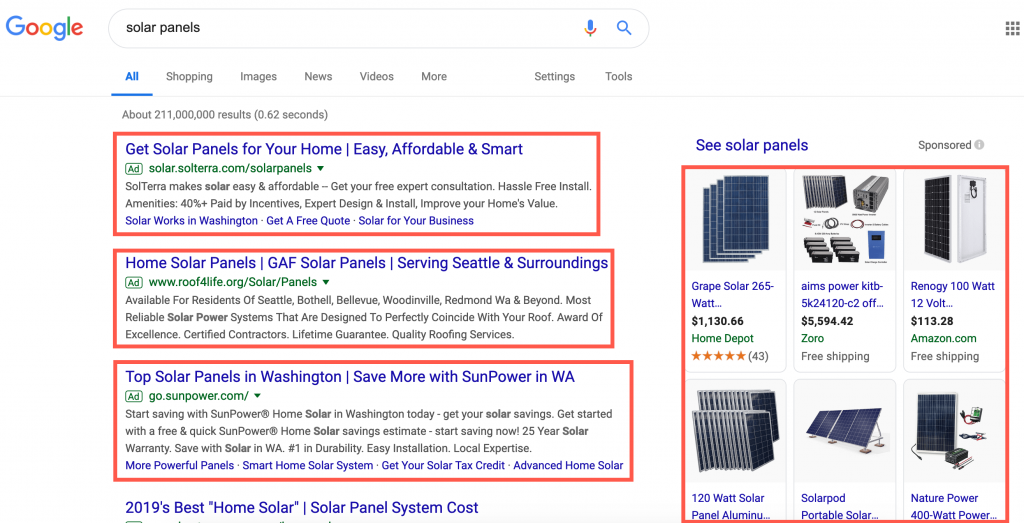
Pay-Per-Click, or PPC, is a popular advertising model in the digital world. It uses search engines or social media platforms to present user ads on various locations and venues. You have seen this kind of advertising many times while searching for something on Google. PPC ads are those promoted links that pop up whenever you enter any keyword. Those results are based on what you typed into the toolbar companies paid for to show up next to. For example, if you put “game console” into Google, there will be ads from shops selling game consoles. Why? Well, because those companies paid for those ads in advance.
The system is based on what’s called “bidding.” Every company spends money on specific keywords to place their ads next to them. In social media, those would change into interested groups, as the targeting on Facebook, for example, is much more demographic-based rather than keywords.
Next, each company bids on specific keywords or interests to put its ad copy next to those. Whether they win is based on the amount of their bid (a significant portion) and the quality of the ad itself. Google and Facebook are stringent when penalizing bad practices in creating low-quality ads, so if your ad does not meet the standards, you will not only lose the opportunity to bring customers to your company but also – probably get dismissed by the companies themselves.
PPC advertising has become one of the most popular ways of promoting products online, and branded PPC keyword trends are some of the most sought-after data on the market. In this article, we will mainly focus on the rivals’ ads, as you can find plenty more PPC-specific articles on our site to learn more about the concept itself. We write about how to get a higher position in the “bidding wars,” increase your conversion rates, and acquire more website traffic through search engines. Let’s now see what it means to analyze what your competitors are bidding at thoroughly.
What Is Competitive PPC Analysis?
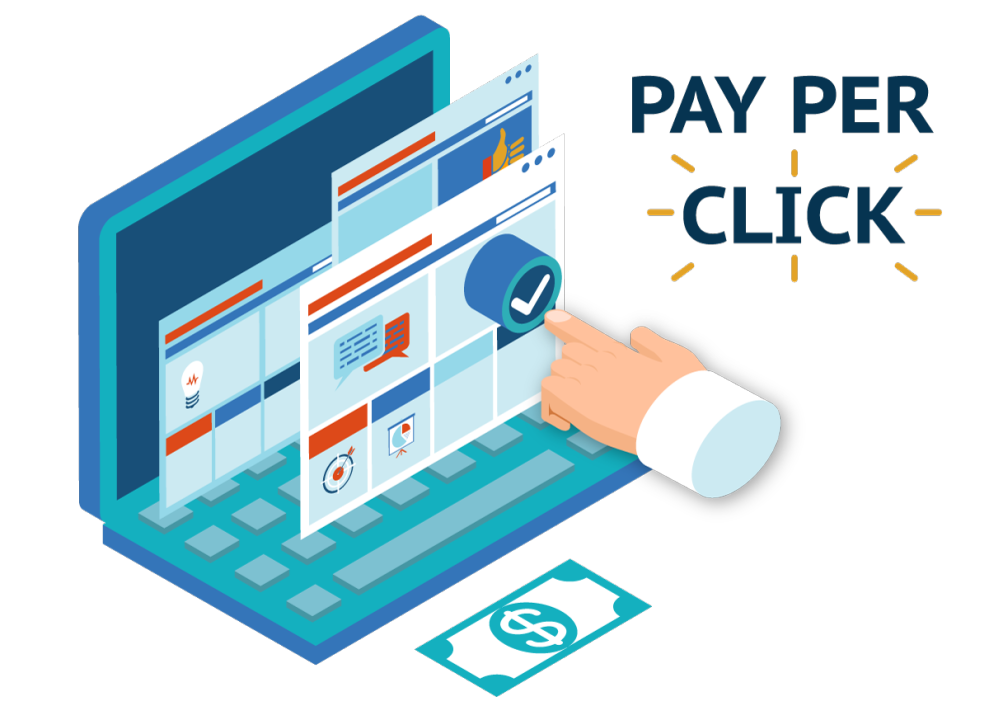
Competitive PPC analysis is a way of getting more insights into how the companies you are competing with are doing their advertising using Pay-Per-Click methods. Your competitors’ PPC is often relatively easy to track, and you will quickly notice that it’s similar to your proposal.
While studying your competitors, you will see how they are getting their clients, how to access different websites with your products or services, and have an idea of what competition levels you are struggling with.
To better understand this process, you need to analyze their average position, ad copies, where their ads are running, if they use the right keywords, and what unique features of their approach you can implement in your company. That can help you reduce your bounce rates, increase your conversion rate, and give you tools to become an even better advertiser.
Here are some key elements to keep in mind when starting your very own Competitive PPC analysis.
Find Your Competition
First, you need to start by identifying your competitors in the digital space. You can find them by looking at their target keywords or the interest groups they advertise to. As they probably have the same intentions as you and try to reach the exact audience you are trying to promote, you can simply put the target keywords that you are interested in into the search bar or create an account with specific interests on social media. Then, you can see what kind of ads are being run next to those keywords or for those interest groups. That way, you will know who you are dealing with and what ad text is being shown to your potential customers.
Keyword Research/Interests
Next, you will have to identify your competitors’ keywords to generate leads. You can use tools like SEMRush or Ahrefs to find the most relevant keywords for your PPC campaigns. By typing those, you will see if they are using the same keyword list as you or if they have something additional you did not think about as a digital marketer.
The same goes for interest groups. You will quickly notice which ads are better positioned for what kind of groups. Fortunately for you, most social media platforms can help you determine the critical metrics for your case. Of course, that does not mean those are the only things that matter, but it’s a pretty good starting point. You can find some external tools, but in your experience, Facebook or LinkedIn have pretty advanced targeting options, so you can base your assessment on their expertise.
Ad Copy
After discovering the interest group, relevant keywords, and competitors you are fighting against, it’s time to get the competitive edge elsewhere – ad copy. Start by studying the key elements of an ad copy, from images, videos, text, what is being highlighted, and what they are focusing on. It’s essential to find out why exactly people are responding to those ads and how you can make those better. Additionally, you can steal some ideas for ad extensions and such.
Landing Page Optimization
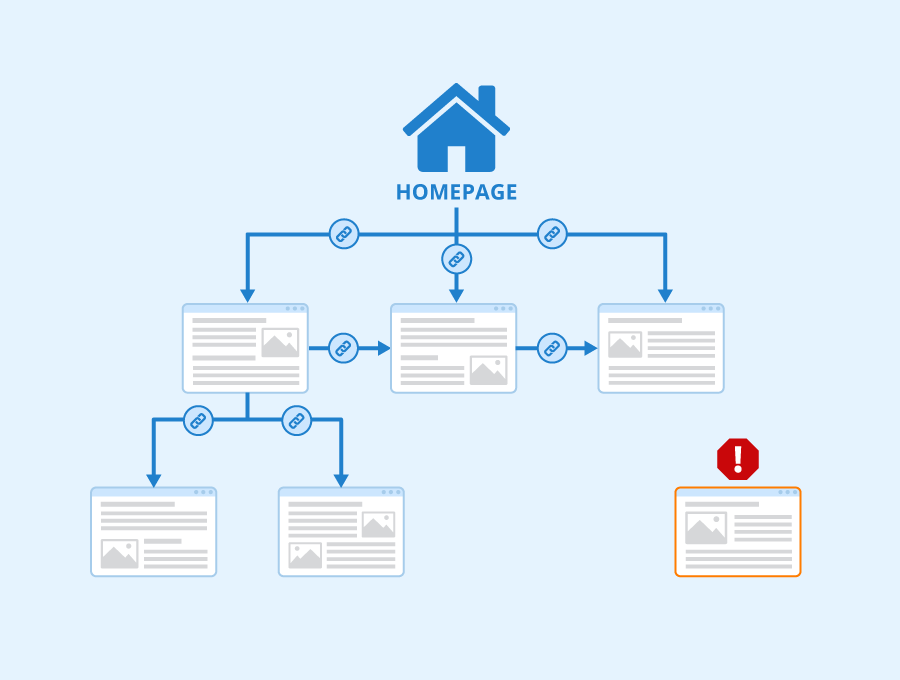
The next thing is the landing page optimization. It’s one of the critical elements when creating a quality PPC campaign. Google, especially, is rather strict regarding the clarity and quality of a landing page, so if you do not have it sorted out – you may start cleaning today.
For your competitive PPC analysis needs, the most important thing to remember is that you don’t need to steal their ideas 1:1, but you can get inspired by the good stuff and see what is annoying you on their page. That way, you can make unique designs while creating something that can benefit the overall user experience.
You may think it’s unimportant, but a landing page can sometimes make or break your campaign. Just think about it – what if you end up on a web page that is not transparent and does not have the quality that will make people want to spend their time on it?
Click-Through-Rate

Another essential element to consider when analyzing your competition is finding out their click-through rate. You can use tools like Google Ads auction insights or SEMrush to understand your competitors’ ad position and CTR. This data will surely not be 1:1, but it can give you some idea of how effective their efforts are compared to what you are proposing. Of course, that does not mean that if you have a lower CTR, you are doing worse, as companies of many different sizes are competing in this race, but it can give you some idea of how the competition is doing.
Geotargeting
Next, you need to find out if your competitors are doing geotargeting and how it is looking out for them. Are they oriented locally or nationally? It can benefit you to know that if the company has many franchises all over the country, you can create a contrary ad, for example, to emphasize the local nature of your business.
Ad Scheduling
Another thing to remember when analyzing your competitors is their ad scheduling. Sometimes, PPC ads can work better during certain times of the day. For example, bar ads set for 10 AM will probably be less effective than if they were shown around when people are leaving work. The same goes for every business; some days and seasons are better for specific products. See what your competitors are doing and decide if copying that behavior in your company makes sense.
Ad Testing
Additionally, see if your competitors are testing different ad versions or if the ad is the end product. Additionally, find out how many variations they have tried and what they did to optimize their campaign. Maybe some of those efforts could be good for your company as well.
Remarketing
And finally, investigate whether or not your competitors are utilizing the remarketing options for their PPC efforts. Usually, you just need to go to their website and put something into the cart, then leave and start browsing the internet. If they use remarketing, see what kind of ads they are showing. Are they doing promotions for remarketing, or are they simply showing the same product? Digital marketers usually focus highly on remarketing, as it is one of the best methods to get clients, so definitely give this one a closer look.
PPC Competitive Analysis Benefits
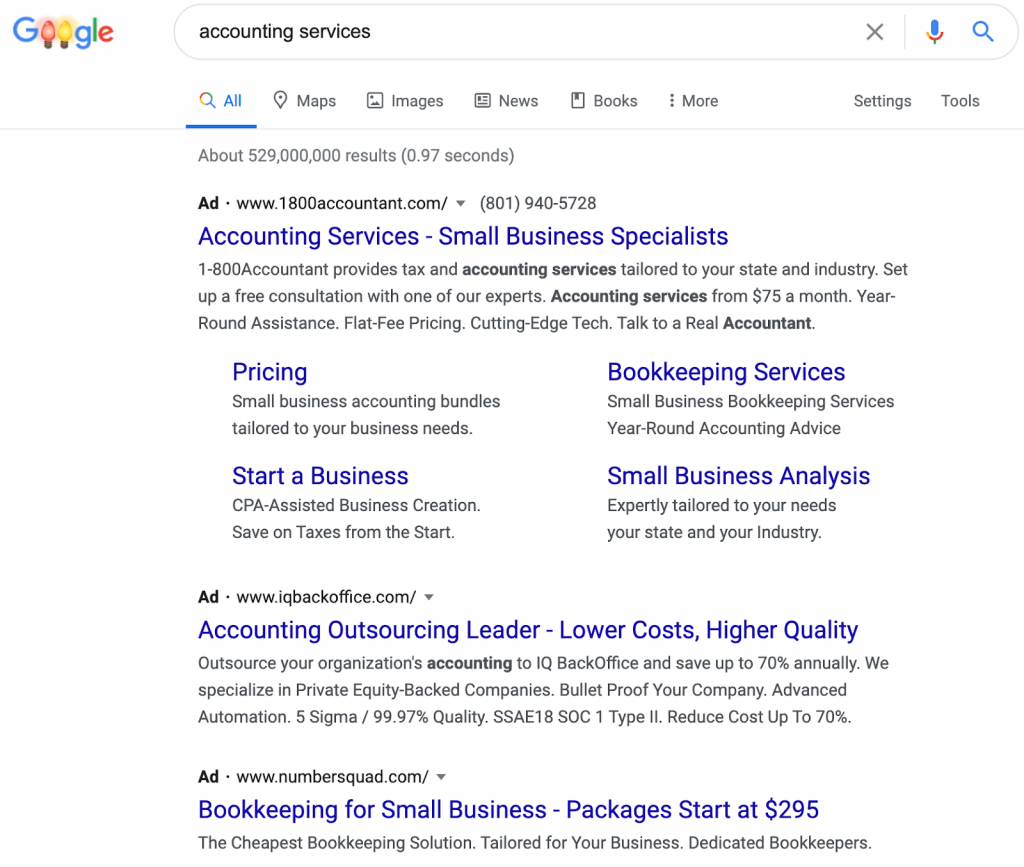
So, now that we know everything about PPC campaigns, let’s go over some of the critical benefits of PPC ads. Of course, those are just some of the most common ones, and you can look out for plenty of additional benefits, especially if you have a particular business. Nevertheless, you can count on most of them, as PPC campaigns are pretty similar in outcomes, meaning – reaching the goal set in the campaign is the key.
Better Performance
First of all, creating ad campaigns usually takes some time. And testing them to see if they are good or bad can also take some additional effort. So, if you would like to optimize your efforts, you can simply look at what your competitors’ strategies are and see if those campaigns work for them. Of course, that does not mean copying something 1:1, but some inspiration here and there will not hurt your cause.
Budgeting
Additionally, analyzing your competitors’ strategies can also help you out in not only avoiding their mistakes but also learning from them what to do to optimize your very own efforts. Whether those would be Microsoft Ads, Google Ads, or Facebook-based PPC campaigns, one thing remains the same – it’s always PPC, and it will always have some ups and downs that you can avoid if you have the knowledge of it. You will surely make mistakes during your run as a digital advertiser, so learn from the mistakes of others as well!
Keyword Discovery
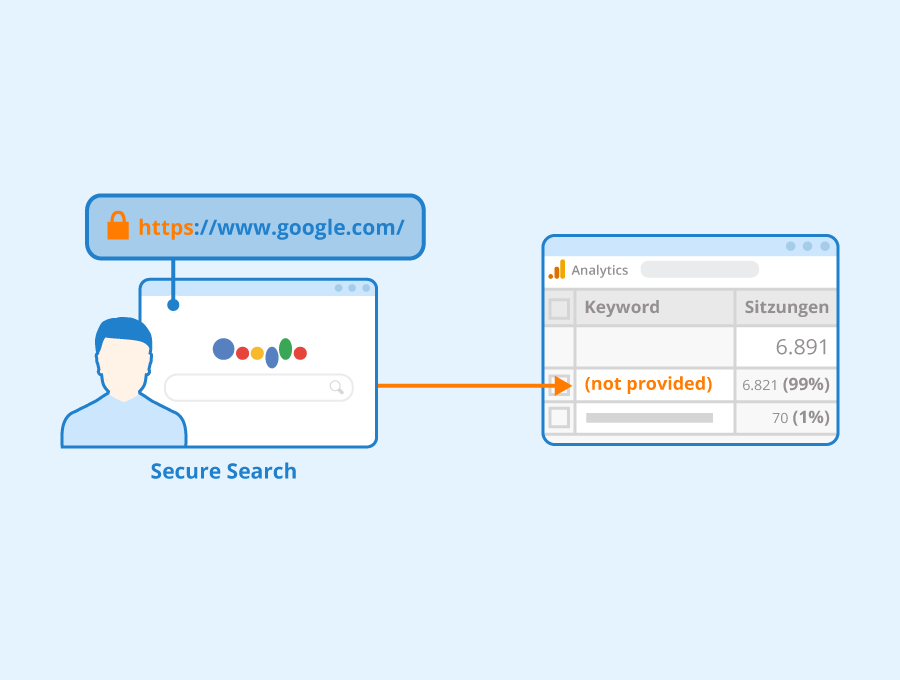
Another important element when it comes to PPC analysis of competition is keyword discovery. While analyzing their steps, you can find some pretty interesting keyword choices or interest groups that they have chosen for their campaigns. Sometimes, those can even be approaches you would never even consider. And, in the end, it’s the most important thing to do – to create an ad that will get to your target audience. And, as you share one, it’s much easier to find the already functioning strategy than to start from scratch.
Ad Copy Comparison
Another big thing is the ad copy comparison you can do in order to create even better ads yourself. Sometimes, you can get inspired by your competitor’s ads. They are successfully working in the same industry as you, so they must be doing something right in the end. We don’t recommend copying everything word for word or image for image, but some kind of inspiration can be useful, like the emphasis of the ad, where they put the links, or what kind of ad positioning works best for them.
What does the Audience Think?
Additionally, you will also be able to see what the audience sees and get into the head of a potential buyer. With the right approach, you will quickly see that you can learn a lot from just viewing the ads of your competitors and seeing them as an audience member who is thinking about what to get next. From that perspective, you will be able to see the differences between their and your approach and find some ways to improve your PPC campaigns.
Landing Page Optimization
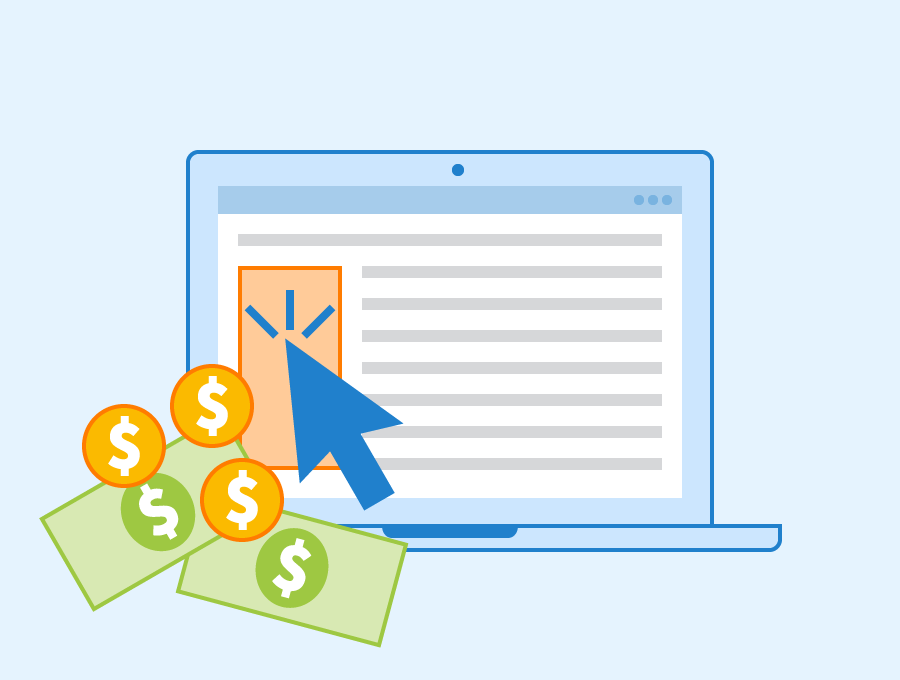
The same goes for your landing page optimization efforts. You may think that your site is pretty good, but if you research your competitors, you will indeed find some ways that you can improve, whether this would mean creating a special button for subscribing to a newsletter or maybe some contact info that pops up next to your ad copy. There are plenty of ways that you can improve your landing page’s design and functionality that are already in circulation. You just need to reach out for it among many landing pages that already exist in your universe.
Geo/Time-Targeting
Additionally, you can spend some time analyzing the geo/time-targeting of your competitors and see if it can help you out in creating your very own strategy. As we have mentioned before, creating the right strategy for a particular product can be hard, so if you already have existing methods that people utilize in order to create something interesting, it’s always good to learn from the best.
Risk Mitigation
Additionally, by looking at what your competitors are doing, you can easily mitigate the risks of running your own campaign by learning from their mistakes. You can see if their approach is too aggressive or lenient; maybe they are too cheap or too expensive. The PPC space allows you to control the landscape you work within and helps you to better understand not only your ad space but the competitors’ as well.
If you want to have your ad on the first few lines of the search engine results page, it’s important to do proper PPC competitor research so that you would not make the same mistakes as they did. Additionally, you can even improve on their efforts by adding or subtracting some elements that you deem unnecessary for this kind of product or service.
Data-Driven Decision Making
And finally, we have the data-driven decision-making aspect of it all. Creating PPC analysis for your competition can not only give you an insight into their work or how you should run your PPC ads but also – a lot of data about the whole market. Analyzing how different companies approach the topic you are interested in and how their audiences react to their PPC campaigns and other advertising efforts is a great litmus test for how this branch of the market operates.
You will see whether or not the people in the industry are responding well to more or less aggressive campaigns, if they are willing to spend some more money for something that has better quality, or just simply see the competitors’ PPC campaigns from start to finish and look how they impact every aspect of their line. It’s valuable information and can benefit your own business as a whole, not only in the marketing sense of it.
Competitive PPC Analysis – Conclusion
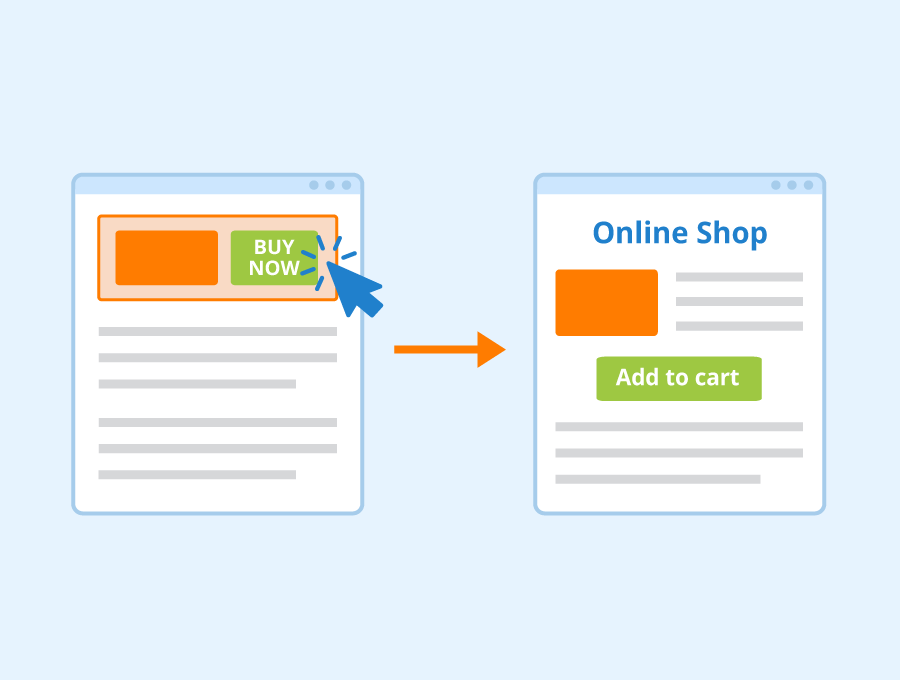
As you can see, a successful PPC campaign can be greatly improved by analyzing your competitors’ work. It can lower your ad spend, get your ad ranked higher than your competitors, and even show you whether or not you use the same keywords as the rest of the industry. Of course, it can only improve your own online marketing efforts, as copying something one-to-one will likely not give you any benefits at all and can cause you some headaches regarding your lawsuits and such. So, modify your PPC strategy accordingly, and remember to optimize rather than revolutionize!
Thanks for stopping by! We hope that you enjoyed this article. If so, feel free to browse through our archives, as we have plenty of articles on digital marketing.

A PPC specialist who started with organic social media. For several years, the core of his activities are:- Google Ads, Microsoft Ads, Meta Ads, TikTok Ads, Twitter Ads, Linkedin Ads. He has led campaigns with a global reach, e.g. for FootballTeam, G2A, ETOTO, as well as many smaller campaigns in the sports, construction and financial industries. Has full focus on ROAS. Privately, a fan of football, history of wars and Star Wars.

